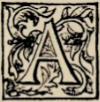
Title: In the Morning
Author: Willis Boyd Allen
Release date: January 25, 2022 [eBook #67246]
Most recently updated: October 18, 2024
Language: English
Original publication: United States: Anson D. F. Randoph and Co, 1890
Credits: Charlene Taylor, hekula03 and the Online Distributed Proofreading Team at https://www.pgdp.net (This file was produced from images generously made available by The Internet Archive/American Libraries.)
TRANSCRIBER’S NOTE
Footnotes have been placed at the end of their respective poem.
IN THE MORNING.
BY
WILLIS BOYD ALLEN.
NEW YORK:
ANSON D. F. RANDOLPH AND CO.
38 West Twenty-Third Street.
1890.
Copyright, 1890,
By Willis Boyd Allen.
University Press:
John Wilson and Son, Cambridge.
| Page | |
| At Chrystemesse-Tyde | 9 |
| Vita Nuova | 11 |
| Not in the Whirlwind | 15 |
| Diapason | 17 |
| Chamounix | 20 |
| In the Morning | 22 |
| Marigold | 25 |
| “Seventeen, Eighteen, Maid’s A-Waiting!” | 27 |
| To M——, on her Birthday | 29 |
| “Yours Truly” | 30 |
| A Sermon by a Lay Preacher | 32 |
| In Somno Veritas | 36 |
| Thalatta | 38 |
| Unknown | 39 |
| My Cross | 41 |
| A Valentine | 42 |
| White Pink | 44 |
| Aprille | 45 |
| May | 46[6] |
| August | 47 |
| Carlo’s Christmas | 48 |
| The Sun was Red and Low | 50 |
| Two Visions | 52 |
| My Creed | 54 |
| Again? | 55 |
| Pansy | 56 |
| Golden-Rod | 57 |
| To Margaret, on St. Valentine’s Day | 58 |
| To a Very Small Pine | 59 |
| Mosses | 61 |
| The Mount of the Holy Cross | 63 |
| Christmas Snow | 64 |
| The “Creation” | 65 |
| The Happy Valley | 67 |
| Dollie’s Spring | 71 |
| The Third Day | 73 |
| The Seventh Day | 73 |
| Fern Life | 75 |
| Its Home | 75 |
| At School | 76 |
| Asleep | 76 |
| A Cradle-Song of the Night Wind | 77 |
| The Chime | 77 |
| The Hymn of the Northern Pines | 78 |
| [7]At Last | 79 |
| Pauses and Clauses | 80 |
| To M——, with a Copy of “The Peterkin Papers” | 81 |
| Memorial Poem | 83 |
| Dandelion | 90 |
| Marjorie | 92 |
| Primrose | 94 |
| Content | 96 |
| With a Small Letter-Opener | 98 |
| Sea-Girls | 102 |
| Homeward | 104 |
| A Nonsense-Song for M—— | 107 |
| Translations | 113 |
| In the North-land | 113 |
| A Lovely Flower | 113 |
| Eagerly I cry | 114 |
| He who for the first Time | 114 |
| Little Maid | 115 |
| It was as if the Heavens | 115 |
| In Morning-Land | 117 |
| Sic Itur ad Astra | 119 |
| The Comet, November, 1882 | 121 |
| “His Star” | 122 |
| “Licht, Mehr Licht!” | 124 |
| Psalm LXXX | 126 |
| Unto the Perfect Day | 127[8] |
| Hymn for Christmas Eve | 128 |
| Blind | 130 |
| Refuge | 133 |
| Guido Reni’s “Ecce Homo” | 135 |
| On Christmas Eve | 136 |
| By Night | 139 |
| “Star of Bethlehem” | 141 |
| “Blessed” | 143 |
| A Christmas Pastoral | 146 |
| The Fourth Watch | 148 |
| “With You Alway” | 151 |
| December 31 | 152 |
| In my Arm-Chair | 154 |
IN THE MORNING.


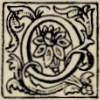


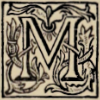
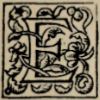
WITH A CHESS-BOARD.




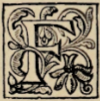











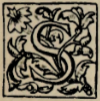


WITH A ROSE.



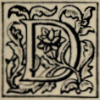




LINES SENT WITH A FOSSIL FROND.

SENT WITH A CLUSTER OF MAIDEN-HAIR FERNS.

I. Its Home.

II. At School.
III. Asleep.
IV. A Cradle-Song of the Night Wind.
V. The Chime.
VI. The Hymn of the Northern Pines.
VII. At Last.
TO MY LITTLE NIECE, KITTIE.
[With a Maltese Kitten.]
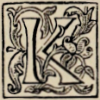

READ AT THE ANNUAL DINNER OF THE BOSTON LATIN SCHOOL ASSOCIATION, APRIL 29, 1886.

[1] Presiding at the Dinner.




TO W. B. W.


A TWILIGHT SONG OF THE WHEEL.

FROM THE BACK OF THE NORTH WIND.[2]
I.
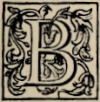
II.
III.
IV.
[2] Suggested by George MacDonald’s little book of that name.
SONGS FROM HEINE.

(Eichendorff.)









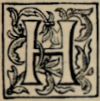



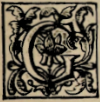






THE END.
TRANSCRIBER’S NOTE
Obvious typographical errors and punctuation errors have been corrected after careful comparison with other occurrences within the text and consultation of external sources.
Except for those changes noted below, all misspellings in the text, and inconsistent or archaic usage, have been retained.
Some words with hyphens, or without them, have been silently adjusted to be more consistent.